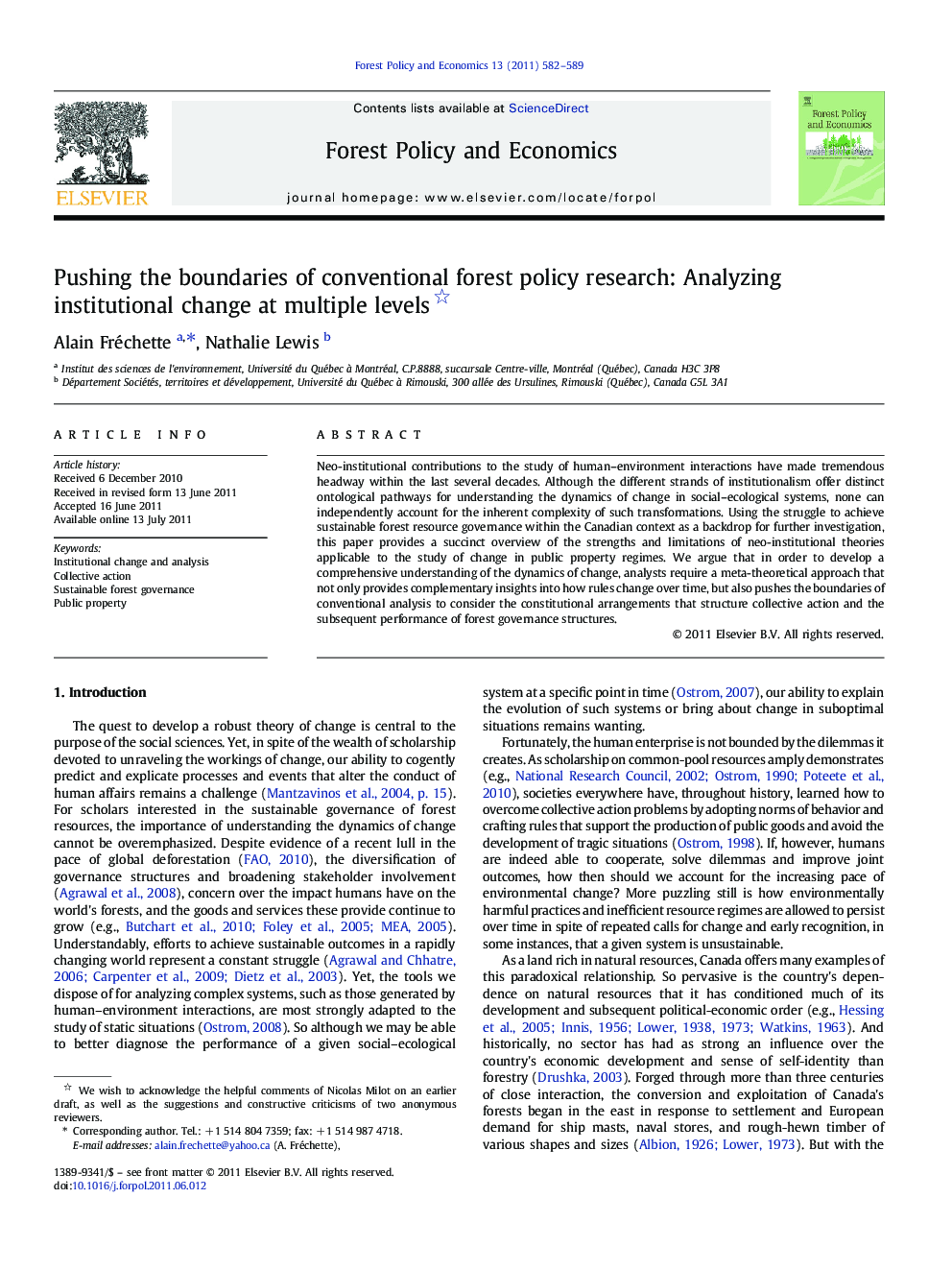| Article ID | Journal | Published Year | Pages | File Type |
|---|---|---|---|---|
| 91402 | Forest Policy and Economics | 2011 | 8 Pages |
Neo-institutional contributions to the study of human–environment interactions have made tremendous headway within the last several decades. Although the different strands of institutionalism offer distinct ontological pathways for understanding the dynamics of change in social–ecological systems, none can independently account for the inherent complexity of such transformations. Using the struggle to achieve sustainable forest resource governance within the Canadian context as a backdrop for further investigation, this paper provides a succinct overview of the strengths and limitations of neo-institutional theories applicable to the study of change in public property regimes. We argue that in order to develop a comprehensive understanding of the dynamics of change, analysts require a meta-theoretical approach that not only provides complementary insights into how rules change over time, but also pushes the boundaries of conventional analysis to consider the constitutional arrangements that structure collective action and the subsequent performance of forest governance structures.
►Our capacity to explicate change in forest governance institutions is limited. ►The nested hierarchy of rules in centralized regimes can undermine change. ►Neo-institutional accounts of institutional change offer useful but partial insights. ►A meta-theoretical approach is needed to assess social–ecological interactions. ►Constitutional choices ultimately frame the long term performance of such systems.
